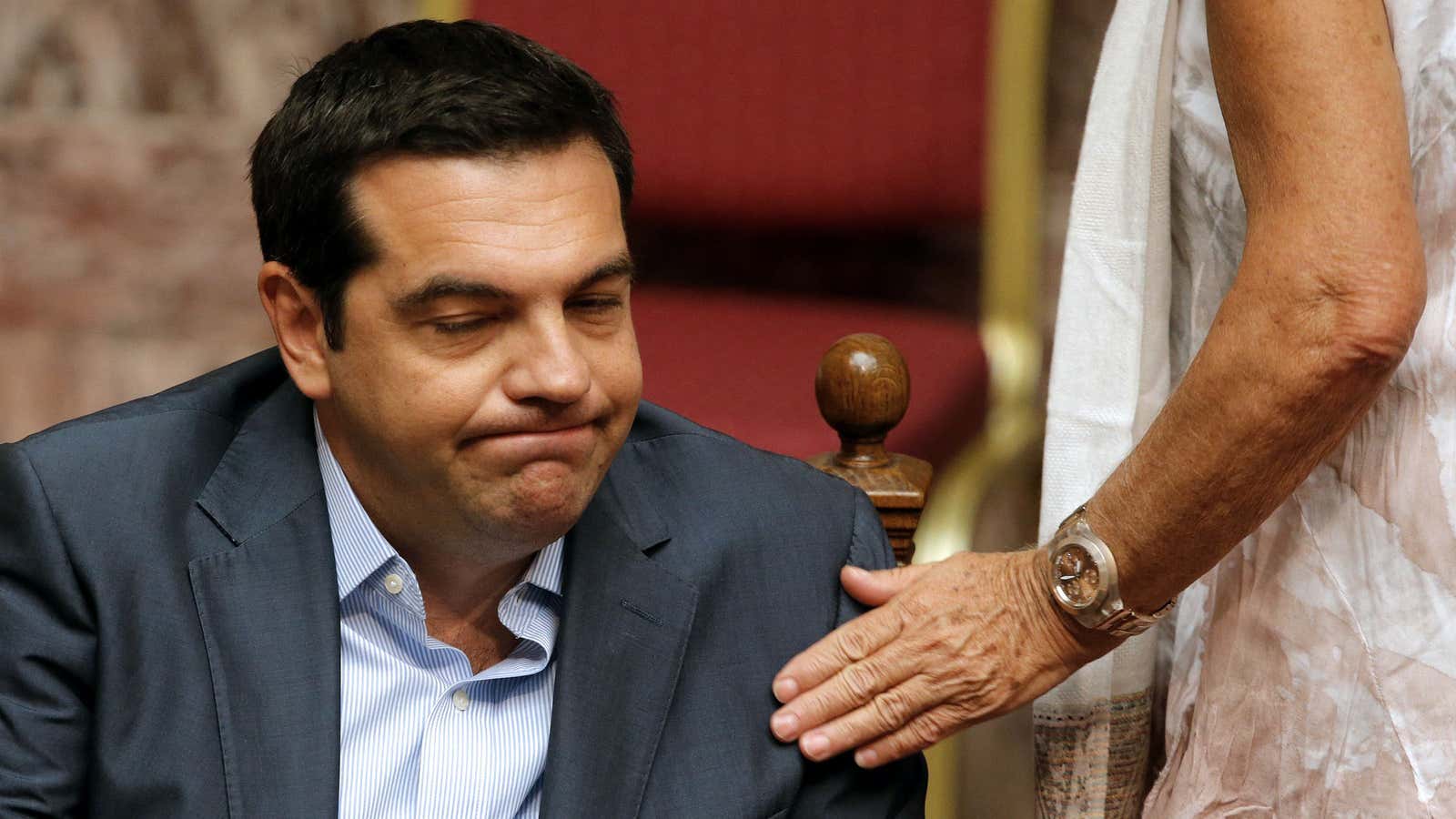Now that euro-zone finance ministers have approved a new €86 billion ($95 billion) rescue program for Greece and the country has begun a new round of reforms and austerity to pay its bills, there’s just one problem: None of it will be enough for Greece to actually, uh, pay its bills.
Take it from International Monetary Fund director Christine Lagarde, who wouldn’t sign on to the new loan package: “I remain firmly of the view that Greece’s debt has become unsustainable and that Greece cannot restore debt sustainability solely through actions on its own.”
The IMF has left open the possibility of joining the bailout program in October if Greece receives some form of debt relief. The European Central Bank and the European Commission have also begun raising similar concerns.
But the prospect of debt relief has lead to a new version of magical thinking, in which arguments against further debt relief are supported by the idea that Greece’s borrowings, while astronomical, come with such good terms, at below-market rates, that what appears to be a debt level of 200% of GDP is really more like 150% of GDP in net present value terms. In other words, the debt load is actually quite manageable if you pretend that Greece could pay it all back right now.
The reason the IMF won’t make new loans to Greece is not because its economists misunderstand the great terms Greece is getting, but because they believe Greece still can’t pay down the loans even at those generous terms. European politicians are desperately hoping their voters won’t notice this until it is too late.
We’ve seen magical thinking about Greece before, but from the country’s leftwing government. For example, back in January, when the new government was inaugurated, prime minister Alexis Tsipras and his blustery finance minister Yanis Varoufakis thought they could threaten an exit from the currency union to get more of a pro-growth program from their creditors, even as they undid some of the reforms those creditors agreed with previous governments in return for Greece’s first two bailouts.
Some on the left hoped that Greece, which had completed Europe’s largest fiscal adjustment in the preceding years, could grow without further reforms to its sclerotic economic system, and particularly its labor markets. All that the policymakers needed to worry about, the thinking went, were the near-term cash flows, and those could be rejiggered to boost a Greek economy struggling under the straightjacket of euro-zone monetary policy while still paying the bills.
Greece’s more hawkish creditors did not buy this argument, because they are lenders and want to get paid back eventually. When they called the government’s bluff and Grexit did not occur, the magical thinking from the left came to an end, and Greek lawmakers began enacting pension cuts, foreclosing on insolvent homeowners, and rebooting stalled privatizations.
Of course, the biggest priority for all sides is making sure that Greece has enough near-term financing to avoid an all-out default. Here, Athens has a fair argument about the room for fiscal easing—while the creditors are probably right that the most politically palatable debt relief will come through a restructuring for longer repayment terms and lower interest rates, not cuts to the face value of debt. (Still, that’s a far cry from claiming that debt relief is simply the difference between the present value of a new loan and its nominal value.)
The only remaining question—besides potential Greek elections in September, and won’t that be fun—is whether the IMF will call Europe’s bluff on debt relief, or if we’ll all re-enter the realm of magical thinking a few years hence in the next chapter of Greece’s never-ending financial crisis.
